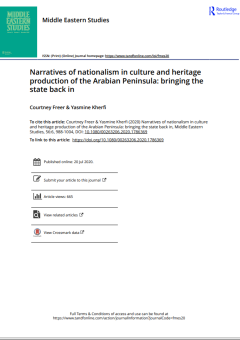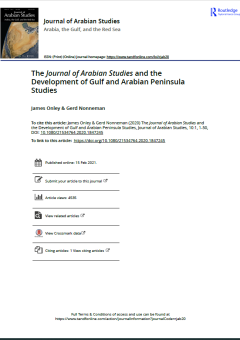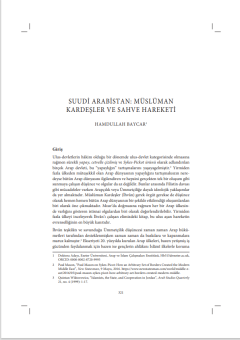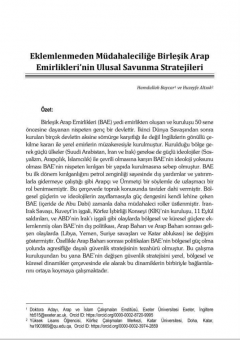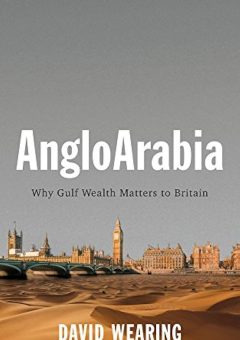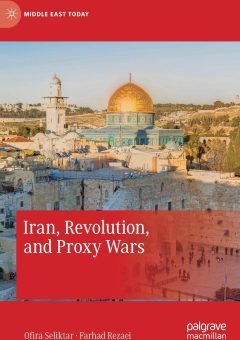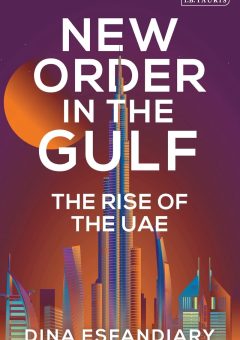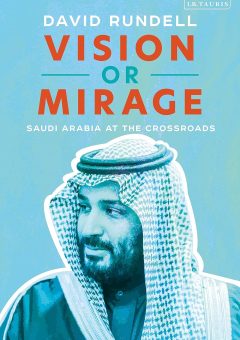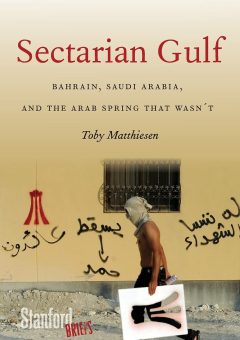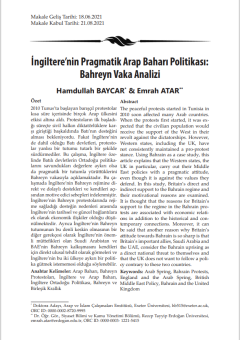Bibliography Subject: Politics
- December 3, 2023
- 2:30 am
Abstract / Review
Over the past decade, all six states of the Gulf Cooperation Council (GCC) have invested considerably in the development of their local heritage industries. In parallel, these states have expanded their efforts at fostering home-grown nationalism. What scholarship exists on the topic of expansion of the heritage industry tends to
- October 7, 2023
- 10:26 am
Abstract / Review
On the occasion of the 10th anniversary of the Journal of Arabian Studies (JAS), this article offers the first history of the field of Gulf and Arabian Peninsula Studies (GAPS), including the origins and evolution of JAS. It begins with an overview of the origins and evolution of GAPS as
- September 30, 2023
- 1:23 pm
Abstract / Review
- September 30, 2023
- 12:00 pm
Abstract / Review
- September 18, 2023
- 7:00 am
Abstract / Review
In “AngloArabia: Why Gulf Wealth Matters to Britain,” David Wearing analyzes not only how Gulf oil and gas have historically impacted GCC-Britain relations, but also reveals how these controversially reciprocal ties benefit Britain through investment and export of arms, goods, and services; while GCC monarchies in turn strengthen their repressive
- September 18, 2023
- 7:00 am
Abstract / Review
Iran’s military policy is a contentious subject. Ofira Seliktar and Farhad Rezaei provide a comprehensive look at how Iran has been implementing asymmetrical warfare strategy and proxy war since the establishment of the Islamic Revolution in their book Iran, Revolution, and Proxy Wars. Drawing upon comprehensive primary and secondary sources,
- September 18, 2023
- 7:00 am
Abstract / Review
For over a decade now, thinking on regional relations in the Gulf has focused on the competition for regional hegemony between Iran and Saudi Arabia. Today, this perspective is outdated. The smaller Gulf Arab states, led by the United Arab Emirates, are calling for their own goals and interests to
- September 18, 2023
- 7:00 am
Abstract / Review
Something extraordinary is happening in Saudi Arabia. A traditional, tribal society once known for its lack of tolerance is rapidly implementing significant economic and social reforms. An army of foreign consultants is rewriting the social contract, King Salman has cracked down hard on corruption, and his dynamic though inexperienced son,
- September 18, 2023
- 1:25 am
Abstract / Review
In “Sectarian Gulf: Bahrain, Saudi Arabia and the Arab Spring That Wasn’t”, Toby Matthiesen explores the impact of sectarianism during the “Arab Spring” in the Gulf. Drawing on his fieldwork, Matthiesen focuses on Saudi Arabia, Bahrain, and to a lesser degree Kuwait and Oman. The book deals exclusively with the
- September 17, 2023
- 1:28 am
Abstract / Review
The peaceful protests started in Tunisia in 2010 soon affected many Arab countries. When the protests first started, it was expected that the civilian population would receive the support of the West in their revolt against the dictatorships. However, Western states, including the UK, have not consistently maintained a pro-protest

